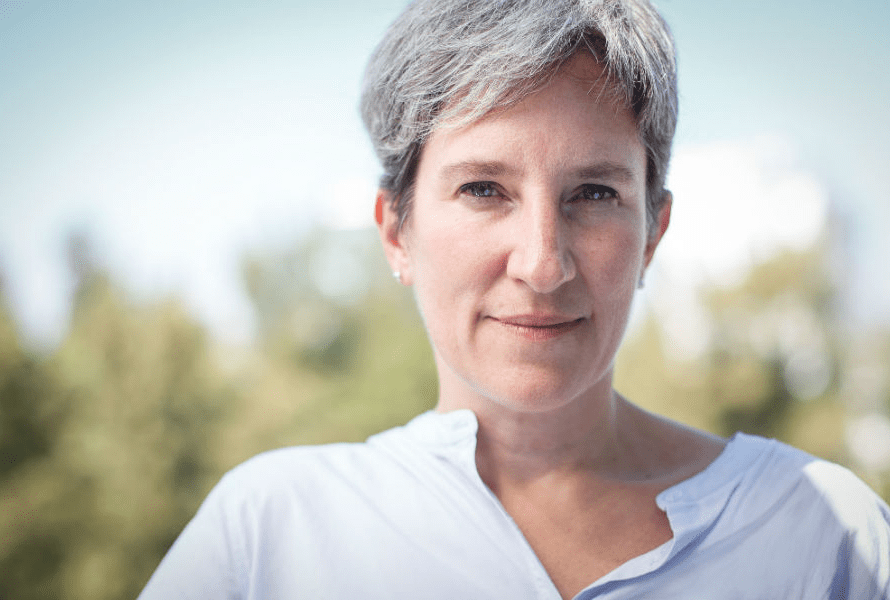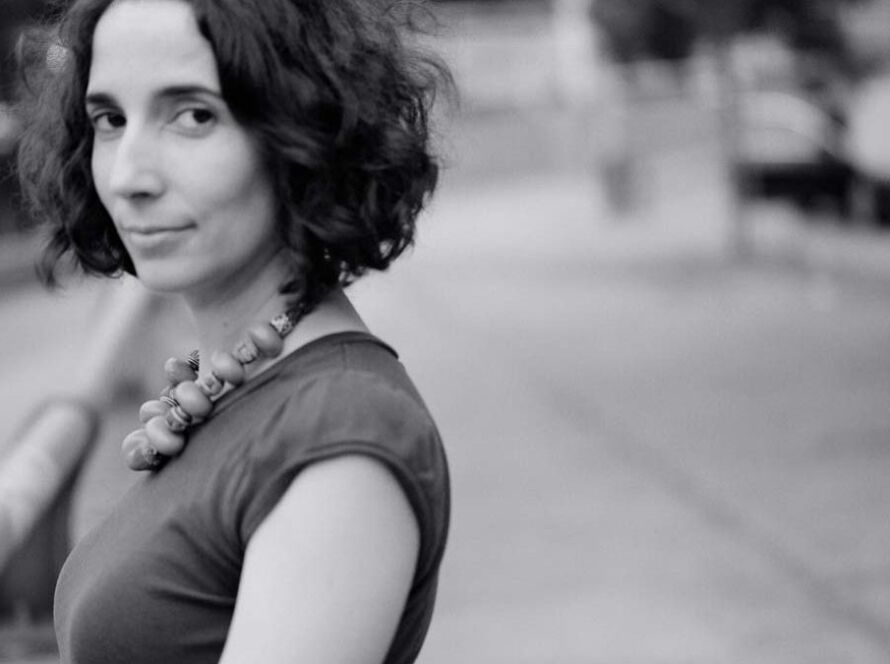Novelist, lyricist and literary translator Magda Bogin is UTV’s founder and director. Enjoy her exclusive interview for Under the Volcano.

What books are you currently reading?
I’m always reading at least a dozen books, most of which I eventually finish except for Steven Hawking’s A Brief History of Time (which has gone around the world with me and remains elusive)—a sign not so much of readerly havoc as of an infinite appetite and the magical thinking that allows me to believe I will eventually read everything, even Shakespeare. And understand black holes.
Current feast: Yuval Noah Harari’s far-searching Homo Deus, one of those books you know with every page that you’ll immediately have to begin again; the free-floating stories of the brilliant Yiddish writer Yenta Mash (indigestible name but an exquisite writer), just translated by my friend Ellen Cassedy; Elena Ferrante’s seductive Neapolitan tetralogy; Joan Silber’s little gem of a book, The Art of Time in Fiction.
I read a fair amount in French—most recently, Patrick Modiano for his dreamlike sentences and plotless plots, and Annie Ernaux, for her poignant clarity and echoes of Flaubert. Recently ran in and out of Rachel Cusk’s Outline, still trying to decide if it’s as clever as some people seem to think. Sebald’s Austerlitz is waiting for me to open it again: a single, seamless chapterless memoir of a novel I can’t recommend enough to anyone who thinks about who tells whose story. Lately, thanks to Luisa Valenzuela, I’ve been reading a lot about volcanoes, because one is going to erupt in my new novel.
What books do you return to over time? Why?
More poetry than anything else: Mandelstam, Akhmatova, Rilke, Lorca, Dickinson, Nerval. There are more, but those are the ones who sleep next to me and to whom I turn for words in the dark. With prose, I tend to open books and close them fast. I often just need to know they’re there, but sometimes I need to take a peek. Maupassant is always close, for his combination of concision and surprise. Virginia Woolf, for idiosyncrasy made art. García Márquez’s No One Writes to the Colonel, for its perfect rhythm. Elena Poniatowska, for the mischief of her voice even at her most serious. I re-read a lot of beginnings, just to feel the energy of other voices, especially Toni Morrison’s Beloved, Juan Rulfo’s Pedro Páramo, Marguérite Yourcenar’s little known Dreams and Destinies and so many more.
Which three writers, dead or alive, would you like to have coffee or drinks with? Why?
Virginia Woolf, because, like Tosca, she lived for art. Elena Poniatowska, because I would love to see her and Woolf in the same room. With those two I’d be tempted to pull Elena Ferrante out of her hiding place and ask her to make the cappuccino, but if she declined (as I suspect she would) I would invite Hilary Mantel, whose short stories are ablaze with irony and whose novels are on my list to read in 2019.
Do you have a secondary passion or talent apart from writing that might surprise people to know about?
I play the Bach suites every morning on the cello. It was the road not taken as a calling, but it still calls out to me and has become a necessary form of meditation.
If you could offer three tips to writers what would they be?
Mine are all borrowed, but they all work. Even just one of them will work. The trick is to remember them. Demystify. Be open to surprise. Just write.
1. From Hemingway: Always stop for the day before you’ve finished a section or a paragraph, especially when things are going well. In other words, leave yourself on edge enough, or with enough of a hook, to know where to begin the next day. When you’re done for the day you should feel wistful and when you start up again you should feel eager.
2. From Amos Oz, via Elena Poniatowska: Being a writer is no different from being a shopkeeper. All you have to do is show up. Roll up the iron curtain on the storefront. Open the door. Some days you’ll have a lot of customers, some days you’ll have none. It doesn’t matter. Your only job is to be there.
3. From Elena Poniatowska: Being a writer is like being a seamstress. You put in the basting. You sew the hem. You move on to the sleeves. Baste. Sew. You just do what’s next and little by little you’ll have a whole dress.
4. My own: Turn off the wifi!
What is your writing routine?
I gave up waiting for the muse a long time ago. When I was a journalist filing daily editorials I learned to let go of all romance. I really only need three things now: the proverbial first cup of coffee, a fairly long glance at the news to make sure there’s still a world, and at least a sniff of outside life if not a full-blown walk. After those three, all that’s left is to turn off wifi and let my work flood back to me. An empty screen can be delicious.
What was your moment of greatest despair as a writer and how did you get out of it?
My only despair as a writer is not having enough time to write. I’ve become fairly good at making the most of slivers of time and training myself to think of interruptions as triggers (kind of like synapses), but I would like to be able to write without interruption, day after day. I long for the gift of time.



